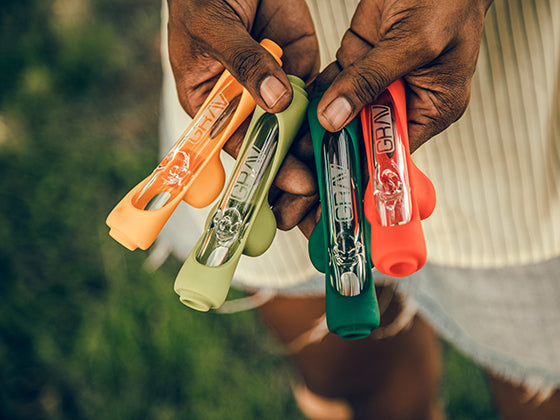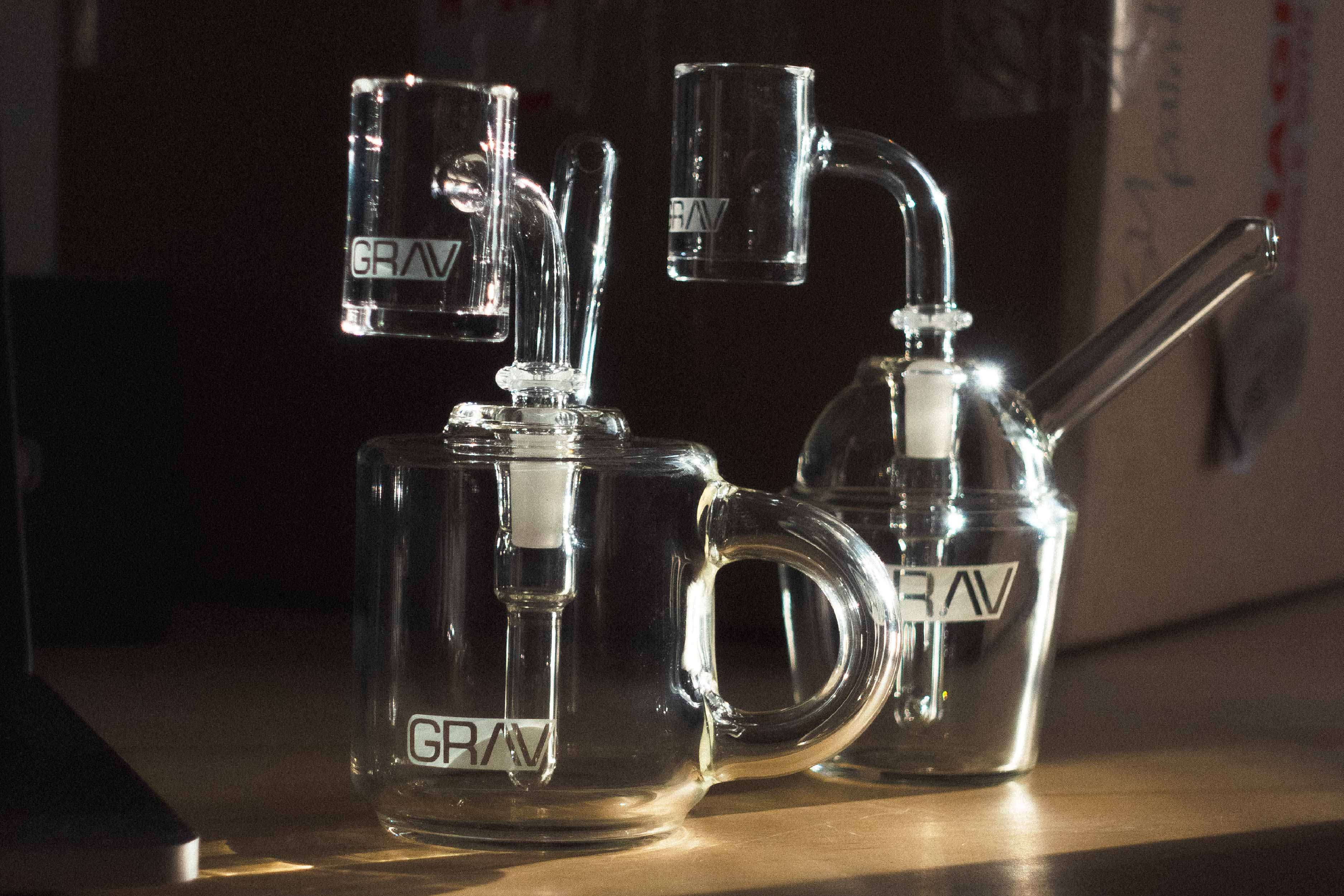It’s a scary time to have a uterus.
With the overturn of Roe v. Wade in 2022, 14 states (including our home state of Texas) have banned abortion outright. Another four have gestational limits of six to 12 weeks—before many people* even know they’re pregnant.
In these states, your body is your own…until it is home to a fertilized egg.
Things are bleak.
But there are groups out there lighting the way. One is Fund Texas Choice, a nonprofit abortion fund helping Texans travel to get legal abortion care across state lines. We spoke to Jaylynn Farr Munson, Fund Texas Choice’s Development Manager, about what FTC does, what the current climate is like in Texas, and how everyone—including cisgender men—can support abortion access for all.
Bridging the Gap Across Texas’ 268,597 Square Miles
While the total abortion ban in Texas only dates back to August 2022, abortion funds have been around much longer to counter anti-choice extremists and their vendetta to minimize or eliminate abortion access.
One such campaign was Texas’ House Bill 2 in 2013. HB2 imposed strict restrictions on abortion clinics, like requiring doctors to have admitting privileges at a hospital within 30 miles and making onerous—and unnecessary—demands for clinic size and infrastructure. The bill led to the closure of over half of the state’s clinics. In response, Fund Texas Choice was founded to help pregnant patients—particularly people of color—to travel across the state to reach an abortion provider.
(While HB2 was eventually overturned in 2016, the damage had been done. Most clinics did not reopen.)
And now that abortion in Texas has been banned outright, their work is even more important. While FTC doesn’t cover the cost of the abortion itself, it can contribute to or cover all of the other costs that come with traveling for healthcare like flights, hotels, ground transportation, food, childcare for kids back home, and more.
The Legal Complexities of Abortion in Texas
In September 2021, SB 8 went into effect in Texas, banning all abortions after six weeks of gestation, with no exemption for rape or incest. Suddenly, Fund Texas Choice went from 40 to 50 calls per month to 300 calls per month from people seeking travel assistance out of state to get abortions. Their team grew from two to eight, and helped 956 Texans travel for abortion care that year.
Less than a year later, Roe v. Wade was overturned and Texas’ trigger law went into effect, banning all abortions from the moment of conception. But just when more people than ever needed help traveling for abortions, Fund Texas Choice had to stop offering aid to pregnant patients. The cause? Deliberately confusing anti-abortion laws that no one was sure how to interpret.
There are pre-Roe statutes that include punishments of two to ten years in prison for abortion providers or anyone who “furnishes the means for” abortions. There’s HB 1280 which makes it a felony to provide an abortion. Then there’s the rest of SB 8, which allows any citizen to bring a civil action against anyone who “aids or abets the performance or inducement of an abortion, including paying for or reimbursing the costs of an abortion through insurance or otherwise…”
Concerned about exposing the team to civil or criminal liability, Fund Texas Choice paused operations. Along with seven other abortion funds and one medical provider, they sued Texas Attorney General Ken Paxton in order to clarify the law. In March 2023, Judge Robert Pitman ruled that the trigger ban (HB 1280) does not bar the funds from assisting with out-of-state-travel for abortion. But the pre-Roe laws are less clear. While the case continues through the courts, Judge Pitman issued an injunction barring district attorneys from bringing action against the funds under these statutes.
Thanks to Judge Pitman’s ruling, Fund Texas Choice is back in action.
[Paxton, predictably, didn’t bother to show up to court. Probably too busy defending himself against charges of securities fraud, accusations of giving a woman he was having an affair with a job, articles of impeachment (of which he was acquitted), and federal charges of using his political position to help a donor. What a guy.]
How Fund Texas Choice Works
Now, FTC is ramping back up. In January 2024 alone, they helped 137 patients travel out of state for abortions.
Jaylynn explained how the process works.
“When a patient calls the clinic to make their abortion appointment, the intake person at the clinic will often ask if they need help paying for the procedure or with travel. If the patient says yes, the clinic will give them a list of practical support and abortion funds that they can call. Fund Texas Choice is often one of those options for Texans.
“The client will then call Fund Texas Choice and leave a voicemail on our intake hotline with their name, zip code, the date of their appointment, and what clinic they’re planning to go to. Then one of our program coordinators will call that person back and connect the dots.
“We’ll get them a flight if they want to fly. If they prefer to drive, we can reimburse them for their gas costs. If they need a hotel room, we can pay for that. We can reimburse them for childcare costs if they have children that need to be looked after while they’re away from home. If they are traveling to, say, Chicago, we can help them with a winter coat and gloves. We pretty much cover every expense that you can imagine that would come up for someone that's traveling out of state for their care.”
Challenges on the Ground
Fund Texas Choice helps to remove cost as a barrier to accessing abortion. But that doesn’t mean the process is simple.
Jaylynn recalls one client’s particularly difficult journey.
“We had a client not too long ago who lived in a really small town and needed to take two buses just to get to their closest regional airport. And the bus never showed up. So we ended up getting them a taxi. The client, with their parent, took the taxi to the regional airport, got on the small flight, took that flight to a major city, and got all the way to the abortion clinic. And the clinic would not accept their student ID. So they had to travel all the way back to Texas and come up with a different type of ID. After that, we never heard back from them. We have no idea if they got their abortion or not. And unfortunately, those barriers can be really common.
“A lot of our clients have never flown on a plane before. A lot of them have never gone through a TSA security check. A lot of them don't speak English. Many are undocumented. Many have kids that they need to bring with them, so they’re driving 14 hours to New Mexico. People don’t think about these barriers. A lot can go wrong.”
Then, there’s the issue of misinformation. As discussed, the legal status of abortion in Texas is confusing. The vigilante law encourages people to spy on and bring litigation against their neighbors. Pregnant patients are afraid to call the Fund Texas Choice hotline, worried that they could get themselves or someone else into legal trouble.
There are also instances where it is not safe for the pregnant patient to seek aid. Jaylynn has heard stories of patients who can only coordinate with Fund Texas Choice on certain days of the week, because those are the only times they are away from an abuser. Intimate partner violence can be a major barrier to care, and Fund Texas Choice may be their only lifeline.
“The Design is Racist”
Abortion bans disproportionately affect people of color. While there was a 2% increase in Texas’ fertility rate between 2021 and 2022, there was an 8% increase in the fertility rate among Hispanic people. And 86% of Fund Texas Choice clients in 2022 were people of color, up 13% from 2021.
“BIPOC folks are already marginalized by the health care system,” Jaylynn says. “We already face discrimination, lack of access to proper medical care, and then the powers that be that have implemented these abortion bans. The design is racist. It's designed to further marginalize communities of color. It's designed to keep people who are already financially or logistically facing barriers even deeper and deeper in stress.”
Put it all together, and you have some of the most vulnerable populations in an even more vulnerable situation. For all the right wing claims to want to protect life, the number one cause of death for pregnant people is homicide. Getting an abortion—even without dire medical need—can be a matter of life and death. And it’s always a matter of human dignity.
“Our goal is to normalize abortion care,” Jaylynn says. “The media focuses on those extreme medical emergencies, because those elicit more sympathy than the black single mother. We don’t get the media attention that the high profile cases do. Wealthy white women have always been able to travel to access healthcare. But the poor people of color who come to us don’t have salaried jobs, paid time off, sick leave. We’re helping people who have no other forms of support.”
Vital Funding for a Vital Cause
Fund Texas Choice is not eligible for federal or state grant funding, so most of their funding comes from small private donors. In addition, some larger benefactors help with operating support.
FTC also hosts fundraisers online and in person. And sometimes, funds can come from unexpected sources. Singer Olivia Rodrigo, for example, is donating part of her Guts Tour proceeds to local funds through the National Network of Abortion Funds.
Texas has been a frequent focus of anti-abortion crusaders, which can help. When the media focuses on a major abortion story, the funds often get an increase in “rage donations” spurred by anger at an extreme case. But the human attention span is short, and when abortion stories aren’t getting press, donations go down while the call volume keeps going up.
How You Can Support Abortion Funds
Abortion funds like Fund Texas Choice rely on small private donors like you to continue their work. Here’s how you can support abortion access in Texas and beyond.
1. Donate to Fund Texas Choice
You can make a one-time donation or set up a recurring donation to support them all year long.
2. Donate to Other Abortion Funds and Networks
Donate to other resources that can help those in need get in touch with abortion providers in their states or nearby states.
I Need An A: A major network that connects patients in need of abortion care with resources all over the country
AbortionFinder: A comprehensive network of abortion providers
National Network of Abortion Funds: Find and donate to your local abortion fund to help those in need in your area, or to support those traveling in from out of state
3. Purchase the GRAV® Flower is Female Poster
A beautiful original piece created by cannabis collage artist Savina Monet. All proceeds go to the artist and Fund Texas Choice.
4. Show Fund Texas Choice Some Love Online
Donations? In this economy? We get it. Instead of donating, share FTC’s content on Instagram or Facebook to help get the word out. You never know who in your life might need them.
*Throughout this article, I have referred to people who can become pregnant in several ways. I have generally avoided the term “women.” While I acknowledge that the majority of people who can become pregnant are cisgender women, there are others—including nonbinary people and transgender men—who can also become pregnant. This language is an attempt to be as inclusive as possible throughout this conversation.














